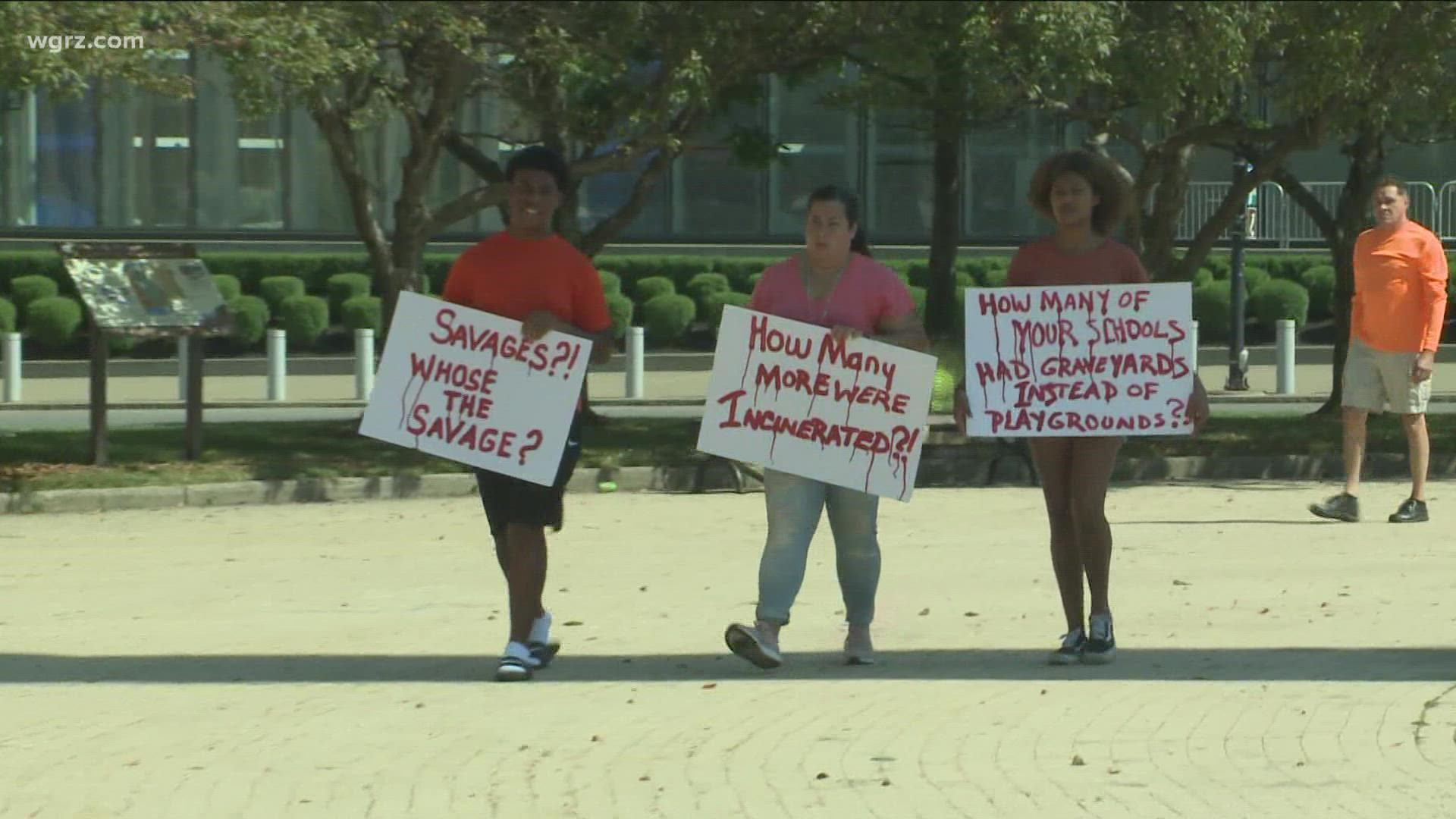BUFFALO, N.Y. — The discovery over the summer of hundreds of unmarked graves at the sites of former Indigenous residential schools in Canada opened the eyes of many people outside of the native communities across North America to the abuse and tragic legacy of these schools.
September 30 is International Orange Shirt Day. It is a day set aside for global conversation on all aspects of residential schools. The name comes from a story about a little girl in western Canada who was excited about going off to school. She was looking forward to her first day and wearing the new orange shirt given to her by her grandmother for that first day at school. When she arrived, she and the other children were stripped of their clothes and put in uniforms. The clothes, including her orange shirt, were then burned.
Orange Shirt Day started in Canada, but has now gained traction in the United States as well. It is an opportunity to create meaningful discussion about the effects of residential schools and the legacy they have left behind. Given our long native American history in Western New York, 2 On Your Side is taking that opportunity to discuss the issue in depth.
There were more than 130 schools in Canada, and 367 in the United States. The intent was to "civilize the natives," teach them skills to survive off the reservation. What actually happened was thousands were forced to attend, taken from their families, in many cases never seeing them again.
The statistics tell the sad story.
In Canada, 150,000 indigenous children were taken from their families. The numbers are not so clear in the U.S. Although by 1925, the numbers in residential schools was more than 60,000. Ninety to 100% suffered severe physical, emotional, and sexual abuse.
The schools started in the mid-1800s and existed in the U.S. until President Lyndon Johnson ended the practice in 1968. The last Canadian school closed in 1996.
One of these schools was located here in Western New York, the Thomas Indian School on the Cattaraugus Territory of the Seneca Nation.
University at Buffalo adjunct professor Dean Seneca says the abuse was widespread.
"Indian kids were beaten if they spoke their language," Seneca said. "Their hair was cut. Their traditional dresses were taken away from them. They were put into these uniforms almost kind of in a military kind of fashion."
He went on to call the schools "institutions for ethnic cleansing."
On Friday, Oct. 1 on WGRZ - Channel 2 we will discuss the intergenerational trauma that has led to issues like increased rates of drug and alcohol abuse and domestic violence. Then, on Saturday, October 2 at 8 p.m. on WGRZ, join us as we devote an entire half hour to the history, the trauma, what political representatives have to say about it, and what is being done to help Native Americans to heal. You can also watch the special below.

